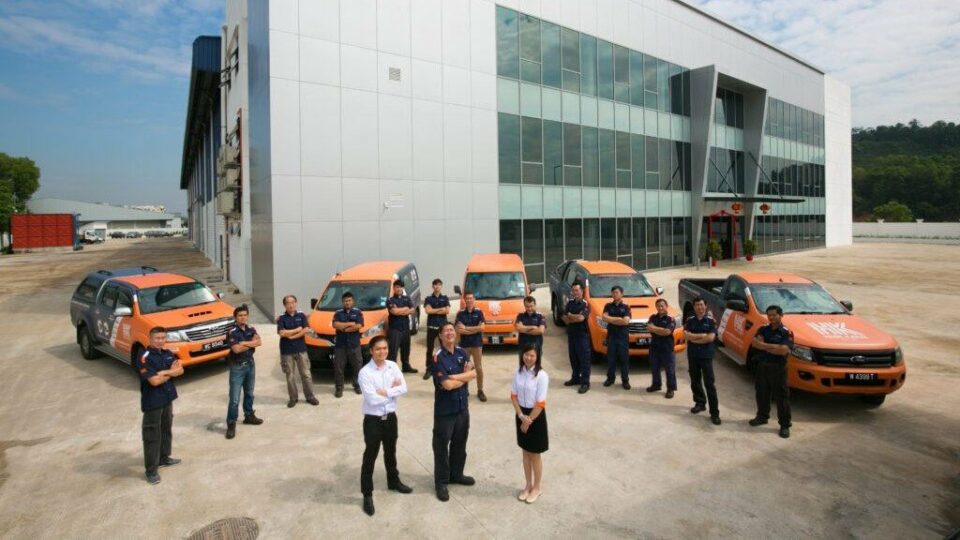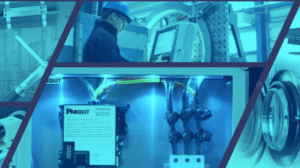Challenges
Hasil Karya is an ISO-certified operation with over 50 employees. The company imports over 100 types of machines globally from Japan, Taiwan, China, South Korea, Turkey, Italy, and other countries. The Balakong-based business supports machinery sales with an in-house after-sales service team.
Hasil Karya was founded when Senior Mr. Tee recognized Malaysian cottage businesses were growing and transforming into original equipment manufacturers, realizing the country’s businesses would eventually need to increase productivity. Senior Mr. Tee began importing machines, including Chinese brands, and later expanded the business to include machinery repair and maintenance.
Today, Senior Mr. Tee and his two sons are taking Hasil Karya to the next level with a strategy based on long-term brand investments, disciplined sales execution, innovation, and focused cost management.
For 13 years, Hasil Karya used an ERP from US to manage the business, but as the company grew, the maintenance fees became overwhelming, says Junior Mr. Tee, general manager. The ERP system ran on-premises, didn’t support mobile access for sales or the field services team, and was not scalable.
In addition, “the vendor had outsourced the ERP support to an individual, which was not sustainable,” Junior Mr. Tee says.
When Hasil Karya launched the previous ERP system, the company had 15 employees and purchased 16 user licenses. Today, however, the company has 53 employees, including a 22-person engineering team that operates in the field. The engineers did not have access to critical information while on job sites.
“When the business grew and we added more people, the processes got much more complicated,” Junior Mr. Tee says.
Dedicated Scheduler Required
To manage the field service team, Hasil Karya needed a dedicated coordinator to schedule technicians and manually hand out information. The coordinator printed out job forms, handed them to technicians, and answered questions when needed. Engineers traveling to customer sites sometimes called for address verification, customers called asking when engineers would arrive on site, and the coordinator sometimes called engineers to learn when they would arrive at a customer job.
“We didn’t have any transparency,” Mr. Junior Tee says. “The process was quite tedious and annoying. If a customer had a question, they called the salesperson, who had to ask the coordinator about an engineer, which meant the coordinator had to call the engineer, then get back to the sales person, who would then call the customer back.”
Without remote access from the field, Hasil Karya was reluctant to purchase additional ERP user licenses. Instead, it hired a developer to write a custom field service application. “Our mindset during that time was we thought SAP was the best,” Mr. Junior Tee says. “We didn’t do much research, which was a big mistake.”
Disconnected Departments
Hasil Karya had other challenges with the old ERP system, Junior Mr. Tee says. When Covid hit and trade shows were canceled, the company turned to social media to find prospects. But there was no way to track leads after the initial contact.
Although they entered the information into a spreadsheet, leads were then emailed to sales, which had its own process. Follow-up statuses weren’t always recorded in the original spreadsheet. Managers had to call each salesperson to learn the results of a lead, which was time-consuming and challenging due to the substantial number of potential leads.
Lacked Field Services
Processes within the old ERP system weren’t connected, says Junior Mr. Tee. For example, purchase orders weren’t connected to sales orders, which led to several errors. Some sales orders weren’t fulfilled because sales forgot to tell the purchasing team, or when purchasing forgot to book a verbal order. Or, without insight into inventory, sales could take an order for an item that wasn’t in stock.
Locating specific inventory items wasn’t sufficient because information about each brand and item were housed in separate databases, he says. “We had to log out and log into another database to get information, and then log out and log back in.”
Meanwhile, the custom field service application developer failed to deliver a working product. “Then we started to do some research and found that complete field service modules are available and a lot of ERPs have them,” Junior Mr. Tee says. “We terminated the project because we realized the scope was too big, the app company couldn’t develop it for us, and it would not work.”
 Canada (English)
Canada (English)
 Columbia
Columbia
 Caribbean and Puerto Rico
Caribbean and Puerto Rico
 Ecuador
Ecuador
 India
India
 Indonesia
Indonesia
 Ireland
Ireland
 Malasya
Malasya
 Mexico
Mexico
 Panama
Panama
 Peru
Peru
 Philippines
Philippines
 Singapore
Singapore
 South Africa
South Africa
 Sri-Lanka
Sri-Lanka
 Thailand
Thailand
 United Kingdom
United Kingdom
 United States
United States








